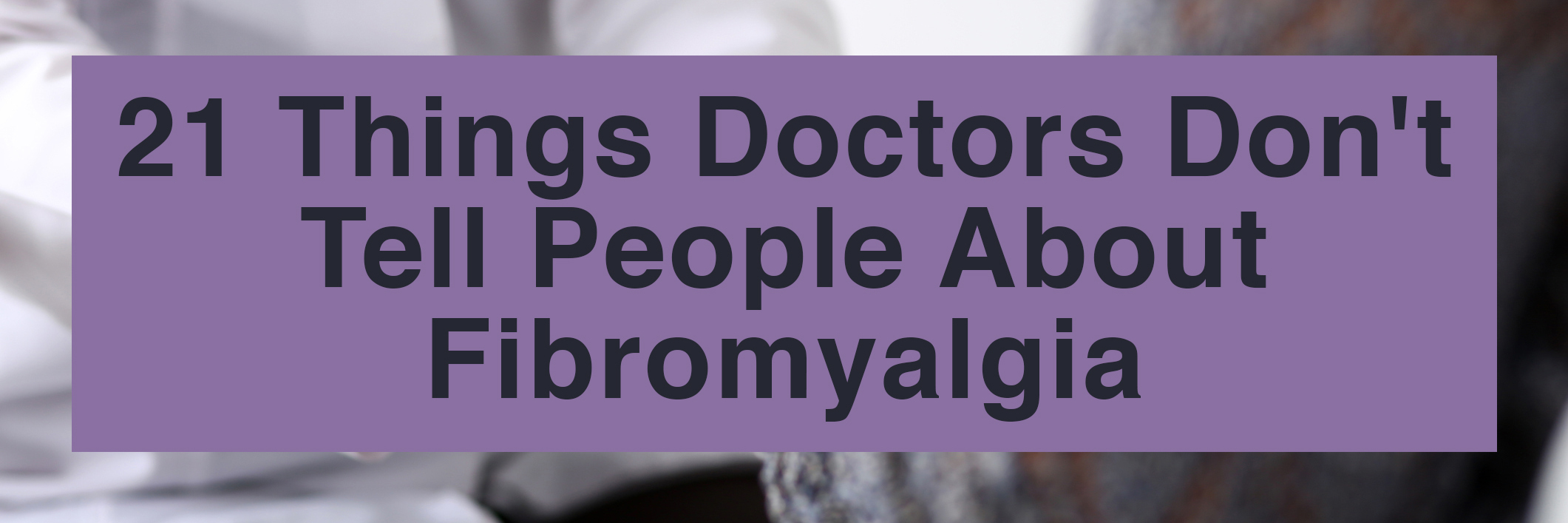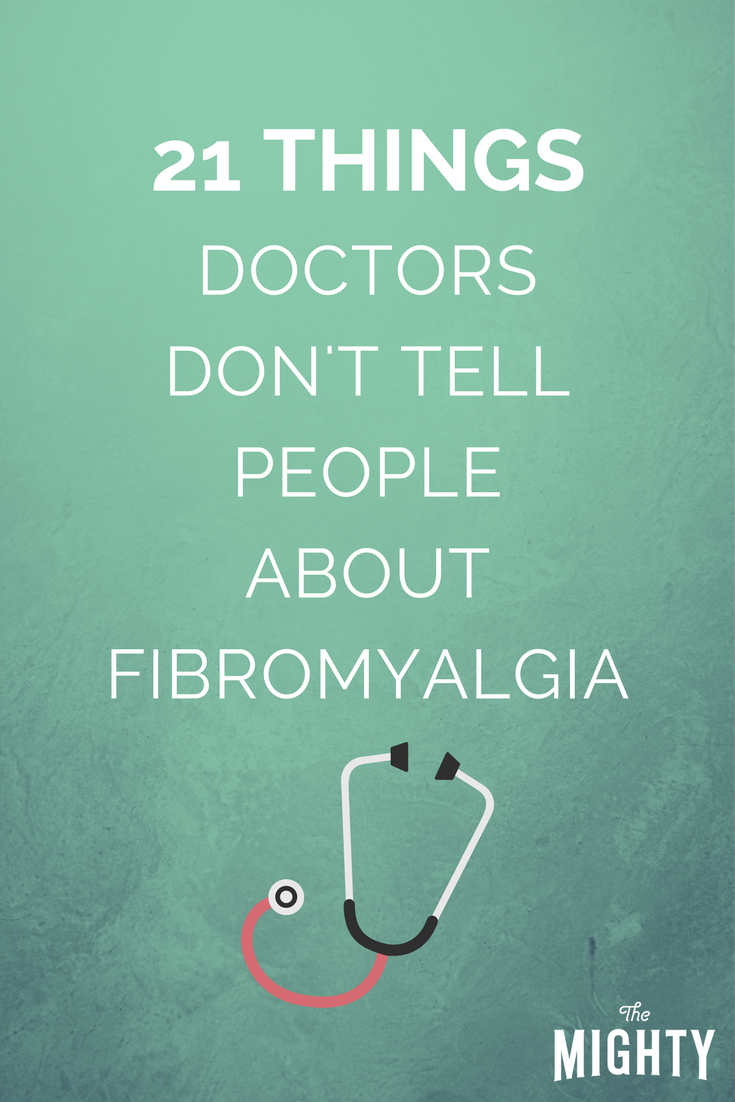When you are diagnosed with any chronic illness, a good doctor should tell you about the symptoms, inform you of the prognosis and offer ideas for treatment or management of the condition. However, fibromyalgia was formally recognized only a few decades ago, and many doctors are still unfamiliar with the illness and how to treat it. Furthermore, it is difficult to truly understand the physical and emotional symptoms a person with fibromyalgia experiences on a daily basis if you haven’t been through it yourself. This can make it hard for doctors to offer patients a full picture of what life with fibromyalgia might look like after diagnosis.
- What is Fibromyalgia?
- What Are Common Fibromyalgia Symptoms?
We asked our Mighty community to share some of the things doctors didn’t tell them about fibromyalgia. Let’s raise awareness and improve our understanding of the illness so doctors can better prepare their patients for the road ahead.
Here’s what the community told us:
1. “They don’t really understand fibro. It varies so much from person to person, and treatment plans are different for everyone, so there are lots of things doctors don’t know about this condition yet.”
2. “You [might] lose friends because you can’t go to every event you used to. But the friends you do keep are amazing and super understanding.”
3. “I actually had a great doctor when I was diagnosed because his wife has it as well. He told me the good, the bad and the ugly. He did also admit that most doctors including himself don’t fully understand it like they should.”
4. “They won’t [always] take other health issues seriously because ‘it’s probably just a symptom of fibromyalgia.’”
5. “There will be people who don’t believe/don’t care about your pain and exhaustion. You [might] have to hide the fact that you are even sick to protect yourself.”
6. “I have yet to have a doctor believe me. They always say I’m too young.”
7. “Most doctors don’t know enough about fibromyalgia to be able to treat it. They didn’t have answers as to why I have so many symptoms or how to manage them. I learned to keep up with current research to educate my doctors and be my own advocate. I learned to pace my activities, and rest when I needed. I learned to trust my instincts more, and not care about offending family, friends or providers with my answers and actions.”
8. “They don’t tell you about the emotions you will have to deal with every single day, the grief for the person you used to be, the guilt you’ll feel every time you let someone down and cancel plans, the fear of the future and the feeling of being a burden to your family. No one emotionally prepared me for life with fibro.”
9. “It affects everything. More than just your body. It will affect your social life, your work life, your love life, etc.”
10. “Every person responds to treatment differently. You have to become your own advocate and search out any and all treatments to see if they work for you.”
11. “They don’t tell you sensory overload is a thing and every sound, flashing light and smell can affect you on good days and bad.”
12. “Doctors don’t tell you how hard it will be to do everyday tasks.”
13. “They don’t tell you how likely you are to have other problems because you have fibromyalgia, such as irritable bowel syndrome (IBS), restless legs syndrome (RLS) or anxiety. They don’t realize how hard it is to have this illness.”
14. “Most won’t tell you to find a rheumatologist who specializes in chronic conditions like fibromyalgia; the specialists cost more to visit, but they are knowledgeable about the condition. Also, do your own research on the condition, symptoms and treatments. At the end of the day, you are your best advocate; empower yourself with knowledge any way you can.”
15. “You will never have good quality sleep and will always be tired. You will have a hard time focusing/concentrating on simple tasks which will seem overwhelming at best.”
16. “Meds don’t [always] work, but meditation, music therapy, art and sleep are your best friends!”
17. “I would constantly be questioned by everyone about the validity of my pain, my diagnosis and my treatment plan.”
18. “Some people can get better with natural remedies. Drugs are not the only way to go. I’m not saying natural remedies will cure you. But they can possibly help relieve your symptoms. This may require a total lifestyle overhaul. But anecdotal stories of improvement abound.”
19. “[They don’t prepare you for] the look of confusion and disappointment in your child’s eyes when you tell them you’re too tired or in pain to play with them.”
20. “What is a 10 today [might] be a seven tomorrow because that pain threshold – where you couldn’t possibly take anymore – it keeps shifting and it only goes up.”
21. “There’s a grieving period that differs for everyone… Grieving our former life, emotionally, physically and psychologically. Depression and anxiety happen and can exasperate flares. It is a life-changer, but not a life-ender. Take your time to grieve, then move forward. Find solid support and be honest with yourself and others. It will be OK.”


